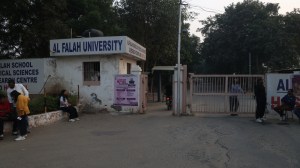Appellants delay transfer of final Bofors papers
GENEVA, March 10: Following unacceptable demands by the appellants in the Bofors-India case, Swiss authorities have abandoned, once and for ...

GENEVA, March 10: Following unacceptable demands by the appellants in the Bofors-India case, Swiss authorities have abandoned, once and for all, procedures that would have led to a swift transfer of the remaining Bofors documents to Indian authorities.
The documents, the last of the remaining papers, are believed to link the Indian business family, the Hindujas, to bribes paid by Bofors for the sale of Howitzers to India.
“We have abandoned that track because we could not take the responsibility to proceed on conditions that would have adulterated the simplified procedure of executing India’s request for assistance,” Michel-Andre Fels, principal Swiss jurist in the Bofors case told The Indian Express.
The appellants, it is believed, made demands extraneous to the fast-track procedure which has very strict guidelines. In its letter rogatory, India had named among others Win Chadha, Ottavio Quattrocchi and the three Hinduja brothers as recipients of bribes. Papers concerning the first two havealready been sent to India.
The process of embarking on this possibility of a swift transfer — a part of Switzerland’s new laws on mutual assistance in criminal matters that came into effect in February 1997 — has led to a loss of some six months for India. On the positive side, experts say the old track severely restricts the right of the appellants to decide which documents can be transferred, a possibility that was part of the abandoned negotiations.
The case now reverts to the former track where Geneva’s investigating magistrate Paul Perraudin is expected to close the procedure and follow that up by a decision to transfer the papers to India. The appellants have the right to appeal against both decisions, first at the lower courts and then at the Federal level. Working in India’s favour in the original track are several decisions by the Federal Court asking that the papers be sent to India as swiftly as possible. In one decision, the court admonished the appellants for wasting its time.
Followingtoday’s decision, the Bofors case is expected to last, at the very minimum, another six to eight months. This in no way restricts India from proceeding against people whose links to the bribes have been established by the transfer of the first set of Bofors papers.



- 01
- 02
- 03
- 04
- 05




























